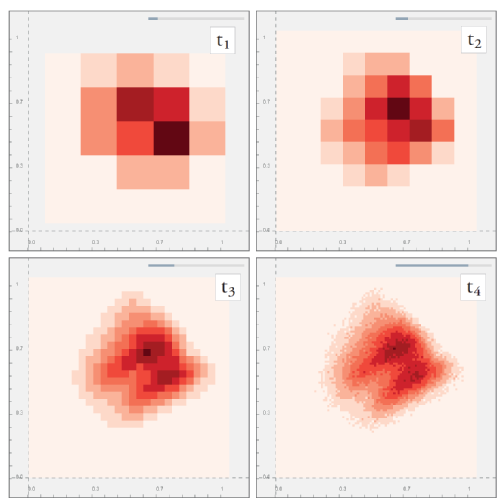University of Warwick Secures £9 Million to Train Future Data Visualization Researchers
A £9 million grant will train researchers in data visualisation – a crucial field to help organisations harness meaning and direction from data.
Data visualisation can be used to build complex data into a clear story upon which actions can be taken. From illustrating how the Covid-19 pandemic made countries poorer, to showing how the processing-power of cryptocurrencies may have driven up the price of high-street graphics cards; data visualisation is crucial to society obtaining meaning from data.
Research in the field can now progress at pace thanks to a new joint Centre for Doctoral Training in Diversity in Data Visualisation, known as DIVERSE CDT, which will train 60 PhD students.
This will be led by the University of Warwick and City, University of London, funded by the Engineering & Physical Sciences Research Council (EPSRC).

Professor Cagatay Turkay, Project Lead, University of Warwick, said: “I am thrilled to see the investment for this exciting initiative that brings City and Warwick together to train the next generation of data visualisation leaders. Together with our stellar partner organisations, DIVERSE Centre for Doctoral Training will deliver a transformative training programme that will underpin pioneering interdisciplinary data visualization research that not only innovates in methods and techniques but also delivers meaningful change in the world.”
The Government’s Department of Digital, Media, Culture and Sport lists data visualisation as one of the top five skills needed by businesses. Wiley’s Digital Skills Gap Index, 2021, listed data visualisation as the third most needed business and organisational skill for employees to succeed in the workplace in the next five years. However, no current CDT focuses upon training its students in data visualisation.
Professor Stephanie Wilson, Co-Principal Investigator of DIVERSE Centre for Doctoral Training, City, University of London, said: “This funding represents a significant investment from the EPSRC and partner organisations in our vision of an innovative approach to doctoral training. We are delighted to have the opportunity to train a new and diverse generation of PhD students to become future leaders in data visualisation.”
Secretary of State for Science and Technology, Michelle Donelan, said: “As innovators across the world break new ground faster than ever, it is vital that government, business and academia invests in ambitious UK talent, giving them the tools to pioneer new discoveries that benefit all our lives while creating new jobs and growing the economy.
“By targeting critical technologies including artificial intelligence and future telecoms, we are supporting world class universities across the UK to build the skills base we need to unleash the potential of future tech and maintain our country’s reputation as a hub of cutting-edge research and development.”
The funding announcement is part of a wider UK Research & Innovation (UKRI) funding announcement to the tune of £1 billion in UK doctoral training investment.
Notes to editors
DIVERSE CDT will be led by Professor Stephanie Wilson, Co-Director of the Centre for HCI Design (HCID) and Professor Jason Dykes, Professor of Visualization and Co-Director of the giCentre, both of the School of Science & Technology at City, University of London.
Members of DIVERSE CDT’s interdisciplinary team include:
· Professor Cagatay Turkay and Dr Gregory McInerny from the Centre for Interdisciplinary Methodologies, University of Warwick
· Dr Sara Jones, Reader in Creative Interactive System Design, Bayes Business School at City
· Professor Rachel Cohen, Professor in Sociology, Work and Employment, School of Policy & Global Affairs at City
· Professor Jo Wood, Professor of Visual Analytics, and Dr Marjahan Begum, Lecturer in Computer Science, School of Science & Technology at City
Ian Gibbs, Head of Academic Enterprise at City.
Key innovations of the new CDT in Data Visualisation will include students:
- undertaking and relating a series of applied studies with world-leading industrial and academic partners through a structured internship programme and an exchange programme with 18 leading international lab
- using an interactive digital notebook for recording, reflection and reporting which becomes a “thesis” for examination, in lieu of the traditional doctoral thesis, and in line with current best practice in data visualization methodology
- being provided with tools that mitigate against the dreaded isolation that PhD students fear, including opportunities for cohort reflection and supportive inclusion via enriching and inclusive processes for admissions, support, and a research environment that addresses barriers for students from under-represented backgrounds; specifically students who identify as female, students from ethnic minority backgrounds and students from lower socio-economic groups.

